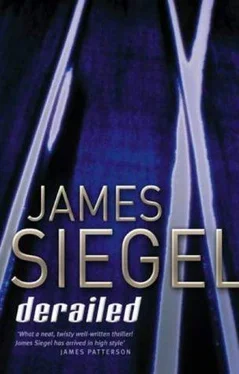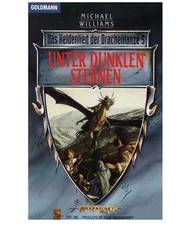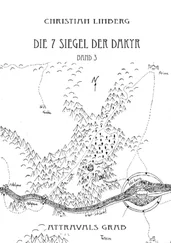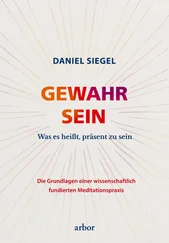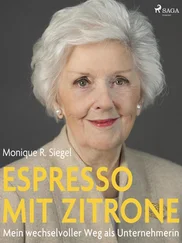“For what purpose?” he asked me.
“Well, kind of like the thing you do — but in writing. My kids can practice their penmanship, and these men can provide some life lessons, maybe.”
“Okay,” he said.
“I was wondering . . .”
“Yes?”
“I knew someone who ended up going to prison — from my old neighborhood. I thought I might start with him.”
“What did he do?”
“I don’t know, exactly. Drugs, I heard.”
“Uh-huh.”
“You have any idea how I could find out where he is?”
“You mean which prison?”
“Yes.”
Farraday shrugged. “I don’t know. I can ask my contact in Chicago Corrections, I guess.”
“Would you?”
“Sure. If I remember. Where’s he from?”
“New York.”
“Uh-huh. What’s his name?”
“Vasquez.”
“Vasquez?”
“Yes. Raul. Raul Vasquez.”
FIFTY-TWO
He knew where I was.
They’d pulled him half-dead from the rubble, but only half.
He was in a coma for weeks. They didn’t know who he was.
His car had been parked in the hotel lot. He hadn’t shown up at work. He was listed as dead.
They ran his fingerprints in a last-ditch effort to find out his name. Raul Vasquez. He had a “did not show” for sentencing for two counts of assault and battery and one for pandering.
He was transferred to a prison infirmary until he recovered sufficiently enough to be brought into Bronx Superior Court for sentencing.
This I knew from the article. The rest of it I imagined.
He’d sat there in prison. He’d thought and he’d remembered.
What Didi had told him. About my daughter. About the special pig insulin she needed to survive. Why pig insulin? She had asked me, remember? Like a concerned lover, instead of an extortionist wheedling the details out of me.
Vasquez sat there in prison and fumed. I was hiding from him. I was gone. But then he understood there was something I would have to do. No matter how carefully I was hiding, I would have to do this thing.
This is Mr. Widdoes. Is my insulin in?
How many drugstores must have said no. Must’ve said, Widdoes who?
But he kept going. He kept calling. He had all the time in the world. He had all the motivation necessary.
Maybe he started in New York. Then on to Pennsylvania. And so on.
One day, he’d reached Illinois.
Roxman’s Drugs.
And this time when he asked if his insulin was in, the druggist’s assistant didn’t say no.
He said not yet.
But it’ll be in Monday.
Two weeks after I’d talked to Jameel, he found me after class and handed me a sheet of paper.
“What’s this?” I said.
“Your guy,” he said. “But there’s three of them.”
“Three?”
“Yeah — three Raul Vasquezes. But if he’s from New York, I’d imagine he’s this one.” He pointed to the first name on the sheet. “I’d imagine he’s here.”
I lay upstairs in bed. I couldn’t sleep.
Kim was attuned to my nightly rhythms and knew without even looking that I was lying there wide awake and staring at the ceiling.
“What’s the matter, honey?” she said. “What’s wrong?”
I couldn’t tell her yet. I didn’t have the heart. We’d escaped from catastrophe once; we’d made a new life. We were happy. I couldn’t tell her that we hadn’t escaped after all. That the past was reaching out for us with icy fingers.
“Nothing,” I said.
I was thinking.
What was parole for a twelve-year sentence?
When would he be getting out?
He would come for me then — I knew that. For my family. And then he would do what he’d done to Winston and Sam Griffen and the man he’d pushed off the train in Lynbrook, Long Island, and God knows how many others.
That day he came to our home as a chimney cleaner.
I heard about a family that went to sleep and never woke up.
Yes, he would be coming for me.
Unless — I whispered it like a fervent prayer.
Unless I get to him first.
He didn’t know that I knew he was alive. He didn’t know that I knew he’d found me.
But what did that matter?
He was in prison. He was locked up.
To get to him, I would have to get inside Attica.
Now — how could I do that?
ATTICA
It was my last class.
I’d circled it in my calendar. I’d rehearsed it in dreams.
When I walked through the metal detector, a CO named Stewey said, “Last day, huh,” and I thought he looked almost despondent. Maybe people get used to the people they belittle, and who knows if they’ll ever find anyone as good again?
Before I went to my classroom, I stopped off in the COs lounge.
It was just a room with folding chairs and tables and a thirteen-inch TV usually tuned to Dukes of Hazzard reruns. The COs evidently had a thing for Daisy Duke — those high-cut shorts of hers, probably — because an old poster of her still hung on the wall. Someone had penciled in nipples on her white blouse.
I poured myself some coffee. I put powdered milk into my cup and stirred it with a plastic swizzle stick.
I casually walked over to the COs museum situated in the left corner of the room.
“You got your twelve oh-one, brother,” Fat Tommy said. He was spread across two metal chairs with a Jenny Craig TV dinner on the table in front of him.
It’s only natural that employees pick up the lingo of the workplace; Attica guards often talked like Attica prisoners. And 12:01 meant gaining your freedom — getting your walking papers.
Maybe, I thought . We'll see.
I sipped my coffee, I perused the collection of gats and burners, as Fat Tommy chomped away on a meal he could only find ultimately dissatisfying. He was the only other person in the lounge.
When I finally turned and left, Fat Tommy looked up but didn’t say good-bye.
From the lounge to the classroom, I first had to go through a black locked door — knocking twice and waiting for another CO to clear me. Then I walked down the “bowling alley,” what they call the prison’s main walkway. It’s dissected down the middle by a broken yellow line, like a state highway. One side is for prisoners. The other side is for COs. Or for people who fall somewhere in between.
I passed a CO called Hank.
“Hey, Yobwoc,” he said. “I’m gonna miss you. You were my best boon coon.”
Translation: best friend.
“Thank you,” I said, but I knew he hadn’t meant it.
When the class settled in, I told them it was the last time I’d be seeing them. That it had been fun teaching them. That I hoped they’d keep reading and writing on their own. I told them that in the best classes, the teacher becomes the student and the students the teachers, and that that’s what had happened here — I’d learned from them. No one looked particularly moved; but when I finished, one or two of them nodded at me as if they might even miss me.
Malik wasn’t one of them. He’d passed me a note last time. Where the writer would be waiting for me.
I told the class we might as well use this last class for creative reflection. I wanted each of them to write an essay on what the class had meant to them. This time, I told them, they could even put their names to them.
Then I excused myself to go to the bathroom.
I passed the black CO who was supposed to be stationed outside the door and who, this time, actually was. I said I’d be back in ten minutes, and he said, “I’ll alert the media.”
Читать дальше
